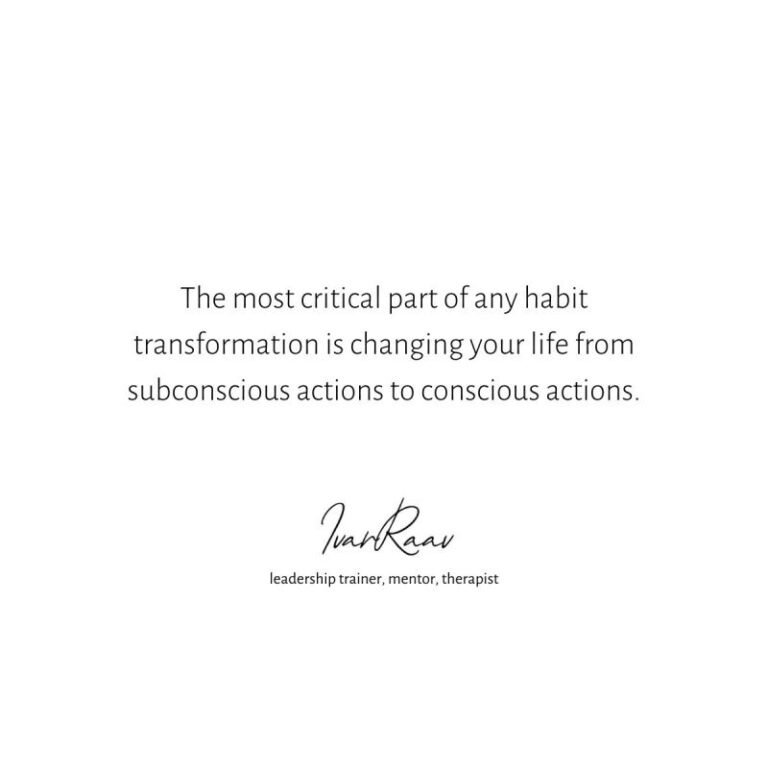As the initial enthusiasm of the new year fades, many find themselves grappling with the challenge of sustaining resolutions. Around the two to three-week mark, the initial burst of motivation can give way to hesitations and resistance.
I believe we all have felt how habits have power over us. But they are neither inherently good nor bad – rather, they are just neutral patterns formed over time. Recognizing them neutrally allows us to approach habits with curiosity and non-judgment. Everything begins with noticing. Management becomes possible when things are visible.
Around the two to three-week mark, as the excitement of resolutions diminishes, maintaining a routine becomes crucial. Rituals and routines play a vital role in shaping habits. Consistently engaging in new actions not only reinforces new habits but also gives a sense of stability and predictability, fulfilling the inherent need for patterns in our psyche — a quest for safety and stability.
By bringing awareness to our habits, we can just notice that some, formed during childhood or past relationships, may no longer serve us. As adults, we have the power to change them consciously by examining and deciding what aligns with our present selves.
Hesitations and moments of doubt are normal parts in the habit formation process. Naming them, such as labeling resistance, and affirming, “Thank you, resistance, I don’t need you today,” empowers you as the manager of your life. You start to use your conscious self, not subconscious. This is the most critical part of any habit transformation – changing your life from subconscious actions to conscious actions. Your thoughts, old patterns, or emotions no longer dictate your path.
If you need help doing this, let me know. I’m here for you as a therapist or mentor.

